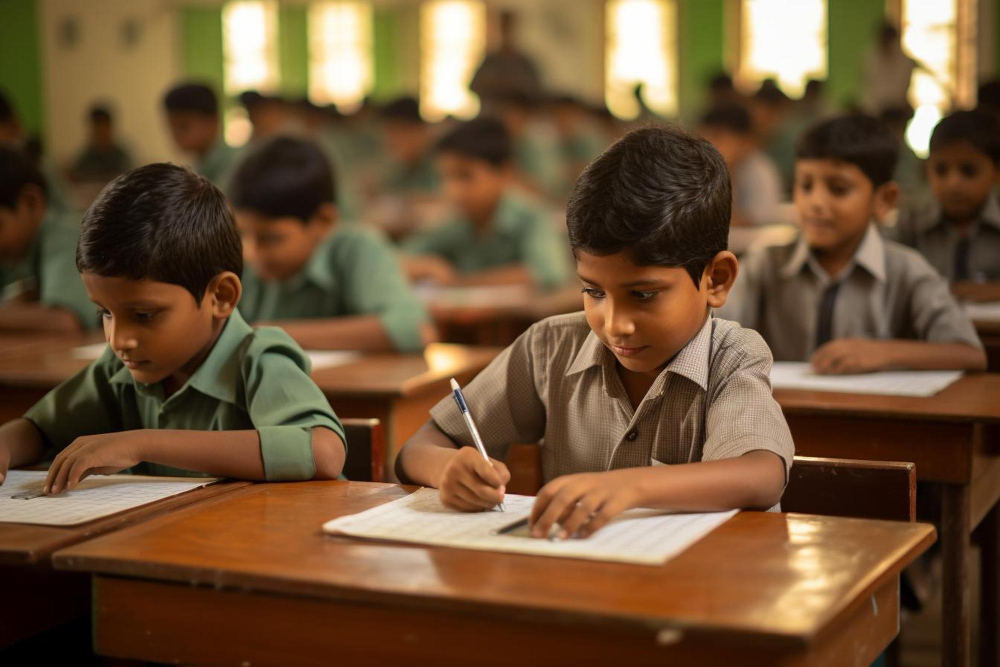

Introduction:
“The highest education is that which does not merely give us information but makes our life in Harmony with all existence.”- Rabindranath Tagore
In today’s world, education is more important than ever, especially in rural areas where it is difficult for children to access quality education. Many children in rural areas lack access to quality education due to various challenges such as poverty, lack of infrastructure, and inadequate resources. As per a recent survey, India ranked 32 in the world on the education index. This is where Corporate Social Responsibility (CSR) programs can play a vital role in supporting primary education and helping build a better future for these children. CSR is a driving force behind positive change, and when it intersects with primary education, the results can be truly transformative. This article focuses on the transformation that CSR can bring to the field of education.
By investing in education infrastructure, providing resources, and training to teachers, and supporting schools, corporates can help improve the quality of education in rural areas. These initiatives have left an indelible mark on the lives of children, teachers, and communities, fueling a wave of progress and productivity. Additionally, CSR activities can help create awareness about the importance of education and encourage more people to support educational initiatives.
India has utilised the highest share of its mandated Corporate Social Responsibility (CSR) fund in the education sector, between FY16-17 and FY20-21, During these five financial years, the education sector received ₹29,918 crore in CSR fund, including CSR Spent on vocational training.
Rural Education: Inequalities, Inadequate resources and lack of skills
The main challenges facing primary education in rural areas include a lack of funding and resources, inadequate infrastructure, and a shortage of trained teachers. These challenges can be especially difficult for girls residing in rural areas whose education is often neglected due to cultural and economic factors, which can make it difficult for them to complete their education or pursue higher education. Recognizing the pivotal role of education in shaping the future of individuals and societies, CSR interventions have become a catalyst for change and productivity enhancement.
Companies are working to improve education in rural areas. With the involvement of technology in their CSR practices, companies are promoting the use of technology in education to help address the challenges and improve access to education in rural areas. By harnessing the power of technology, companies bridge the gap between urban and rural areas and ensure that every child has access to the education they need to succeed.
Primary education is crucial for people residing in rural parts of the Country because it possesses the potential to lift people from poverty and improve their quality of life. By providing children with a solid foundation in the initial years of their education help them develop the skills they require to succeed in life and pursue desired careers. CSR interventions can help improve primary education by providing the required funding, resources, and support to schools and teachers.
Investing in Minds: Business care for primary education
- From ABC to PhDs: Primary education enhances educational opportunities:
CSR interventions in primary education increase access to educational opportunities for disadvantaged children. By partnering with local schools and non-profit organizations, businesses have been able to improve infrastructure, provide learning materials, and offer scholarships. These initiatives have opened doors for children who had limited access to education, empowering them to become productive contributors to society.
In remote areas where formal schooling might not be feasible, innovative CSR initiatives have implemented mobile classrooms or remote learning programs using technology. From mobile apps that help students learn on the go to virtual reality tools that bring lessons to life, technology is transforming the way we think about education in rural areas. This approach has not only widened access to quality education but also ensured a continuous flow of knowledge to areas lacking educational infrastructure.
- Digital Transformation in Education:
Where infrastructure for basic education is lacking, digital literacy is a challenge. Corporates, Governments, and NGOs have been working to bring technology to rural areas of the Country. With the rapid advancement of technology, digital transformation has become a significant aspect of CSR interventions in primary education. Initiatives like the Integration of technology in classrooms, providing access to computers, tablets, and improved internet connectivity in some parts have improved the quality of education remarkably. This digital revolution has enriched the learning experience for students and enhanced their digital literacy skills, which are essential for a productive workforce in the modern era. This has also helped in developing interest in learning and improving attendance rates.
In a world where technology has become the heartbeat of progress, CSR interventions are not far behind. Classrooms are evolving into spaces of boundless creativity and innovation. Additionally, Digital education has emerged as a powerful catalyst for effecting change, faster communication, and networking. CSR programs that provide holistic educational support, including digital literacy encourage students to pursue higher education, even in areas where affordability is a challenge.
- Infrastructure development in Primary schools
Infrastructure is essential for the delivery of quality primary education. The infrastructure condition of the schools in rural areas is an important issue that needs to be addressed. Many schools in rural areas lack basic facilities like clean drinking water, toilets, and electricity. This makes it difficult for students to get a quality education and for teachers to provide one.
Well-maintained schools with good infrastructure provide a more comfortable and conducive learning environment for students, which can lead to improved academic performance. Companies can invest in building and improving school infrastructure, such as constructing classrooms, providing clean drinking water, and installing toilets. Additionally, companies can provide resources like textbooks, teaching materials, and technology to help enhance the learning experience for students and teachers.
Investing in school infrastructure in rural areas can be a crucial CSR intervention for companies that can help in addressing social and environmental challenges, promote sustainable development, and create positive social impact. These interventions can help reduce poverty, promote economic growth, and create a more equitable society.
- Quality Education: Influence multiple SDGs resulting in holistic development:
An innovative aspect of CSR interventions in primary education is the focus on holistic development. Achievement of Sustainable Development Goal (SDG) 4 relating to quality education can help take important steps towards other SDGs like no poverty, gender equality, reducing inequalities, Good Health and well-being.
Apart from academic excellence, support is being provided to extracurricular activities, sports, arts, and cultural activities to promote well-rounded development. Such initiatives enhance students’ creativity, problem-solving abilities, and overall personality, making them more productive and confident individuals in the long run. Gone are the days when education was just about textbooks and exams. The new era supports and promotes skills that are shaping tomorrow’s workforce. Education goes beyond textbooks and grades, and CSR initiatives know it all too well.
Conclusion: –
CSR intervention in primary education has proven to be a transformative force in driving productivity and sustainable development. By investing in primary education, companies help create a brighter tomorrow for all. Through innovations in teaching methodologies, technology integration, teacher training, and holistic development, CSR initiatives empower young minds and create a competent and productive workforce for the future.
It’s a smart investment that pays dividends for years to come. Not only does it help create a more educated and skilled workforce, but it also helps companies build strong relationships with communities, which can help them create a positive brand image and enhance their reputation. As businesses continue to embrace CSR in primary education, they move closer to building a brighter and more equitable future for generations to come. Despite the challenges faced by corporations in assessing the needs of society and the actual benefits reaped by beneficiaries from the aforementioned – programs, they continue to work tirelessly to make a meaningful change in society. They are driven by their vision and mission to change the way education is delivered in the modern era.
This article is published in Taxmann. The link to the same is: –

